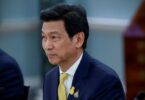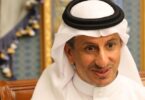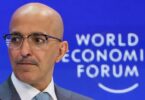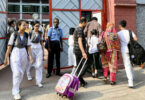JAKARTA (Reuters) : Chinese Premier Li Qiang said on Wednesday it is important to avoid a “new Cold War” when dealing with conflicts between countries as world leaders gathered in Indonesia amid sharpening geopolitical rivalries across the Indo-Pacific region.
Speaking at an annual summit involving members of the Association of Southeast Asian Nations (ASEAN) and China, Japan and South Korea, Li said countries needed to “appropriately handle differences and disputes”.
“At present, it is very important to oppose taking sides, bloc confrontation and a new Cold War,” Li told the meeting.
ASEAN, which has warned of the danger of getting dragged into major powers’ disputes, is also holding wider talks with Li, U.S. Vice President Kamala Harris, and leaders of various partner countries including Japan, South Korea, Australia, and India.
Neither U.S. President Joe Biden nor his Chinese counterpart, Xi Jinping, is attending the summit.
High on the agenda at the gatherings in the Indonesian capital, Jakarta, is concern about China’s increasingly assertive activity in the South China Sea, an important trade corridor in which several ASEAN members have claims that conflict with China’s.
ASEAN this week discussed with China accelerating negotiations on a long-discussed code of conduct for the waterway, said Foreign Minister Retno Marsudi of the ASEAN chair, Indonesia.
The issue also came up during an ASEAN-Japan summit where leaders “expressed the importance of keeping situations in the region conducive, especially in the Korean Peninsula and also the South China Sea”, she said.
The United States and its allies have echoed ASEAN’s calls for freedom of navigation and overflight and to refrain from building a physical presence in disputed waters. China has built various facilities, including runways, on tiny outcrops in the sea.
“The vice president will underscore the United States’ and ASEAN’s shared interest in upholding the rules-based international order, including in the South China Sea, in the face of China’s unlawful maritime claims and provocative actions,” a White House official said on Tuesday.
Just before this week’s gatherings, China released a map with a “10-dash line” showing what appeared to be an expansion of the area it considers its territory in the South China Sea.
Several ASEAN members rejected the map.
Referring to the South China Sea, the president of the Philippines, Ferdinand Marcos, said his country did not seek conflict but had a duty to “meet any challenge to our sovereignty”.
“The Philippines firmly rejects misleading narratives that frame the disputes in the South China Sea solely through the lens of strategic competition between two powerful countries,” Marcos said.
“This not only denies us our independence and our agency, but it also disregards our own legitimate interests.”
‘GREAT DANGER’
Some members of the Southeast Asian grouping have developed close diplomatic, business and military ties with China while others are more wary. The United States has also courted ASEAN countries with varying degrees of success.
ASEAN, in a draft of a statement it will issue this week and seen by Reuters, said it needed to “strengthen stability in the maritime sphere in our region … and explore new initiatives towards these ends”.
Lina Alexandra, a political analyst at think tank CSIS, said the draft was “very weak on the issues of the South China Sea”, noting the Philippines was losing patience with ASEAN when it came to dealing with China’s presence in the area.
“If ASEAN is not useful that is a great danger, because the other option is they go up to the big powers and they bring these big powers to the region,” Alexandra said.
A source close to the matter verified the draft.
The summit also saw South Korean President Yoon Suk Yeol pledge to work with Japan and China for the early resumption of a three-way talks between them in building better ties.
Yoon said any military cooperation with North Korea must stop. The New York Times reported on Monday that North Korean leader Kim Jong Un plans to travel to Russia this month to meet President Vladimir Putin and discuss supplying Moscow with weapons for the war in Ukraine.
The 10 members of ASEAN held their summit earlier in the week with leaders seeking to assert the bloc’s relevance in the face of criticism it is failing to press Myanmar’s military leaders to cooperate on a plan for peace in their strife-torn country.







